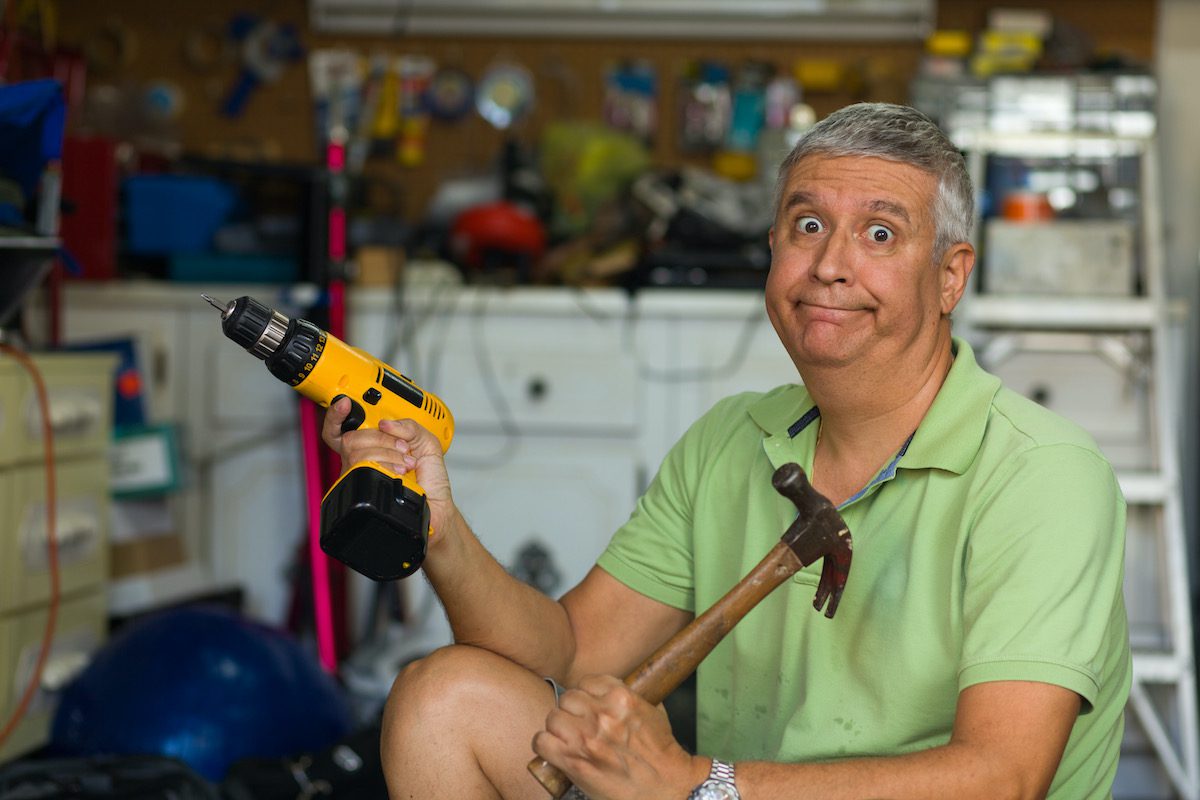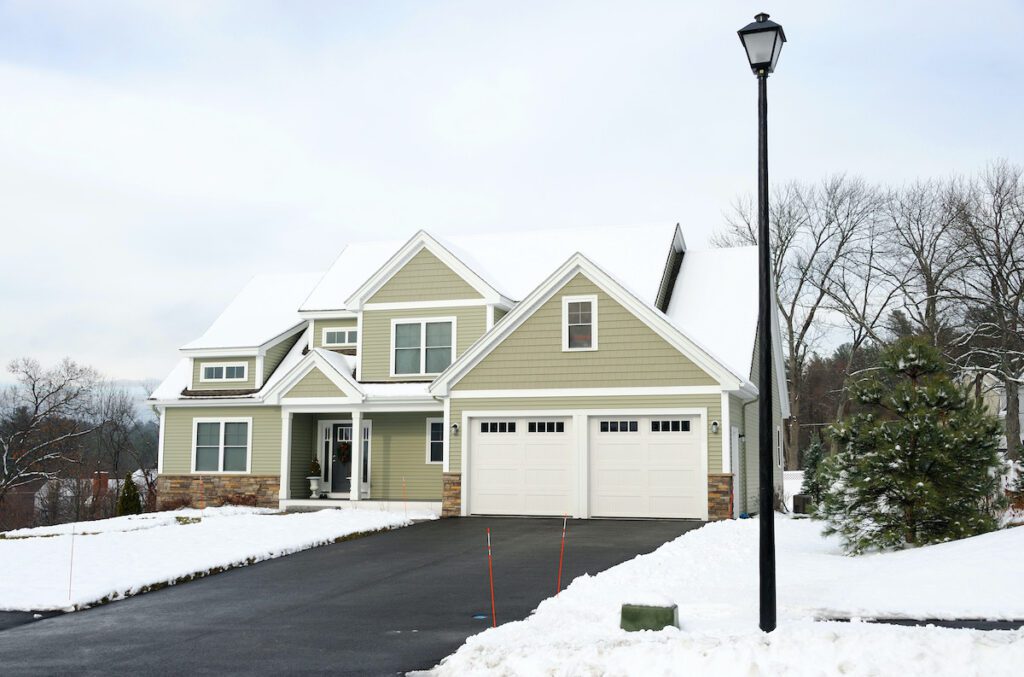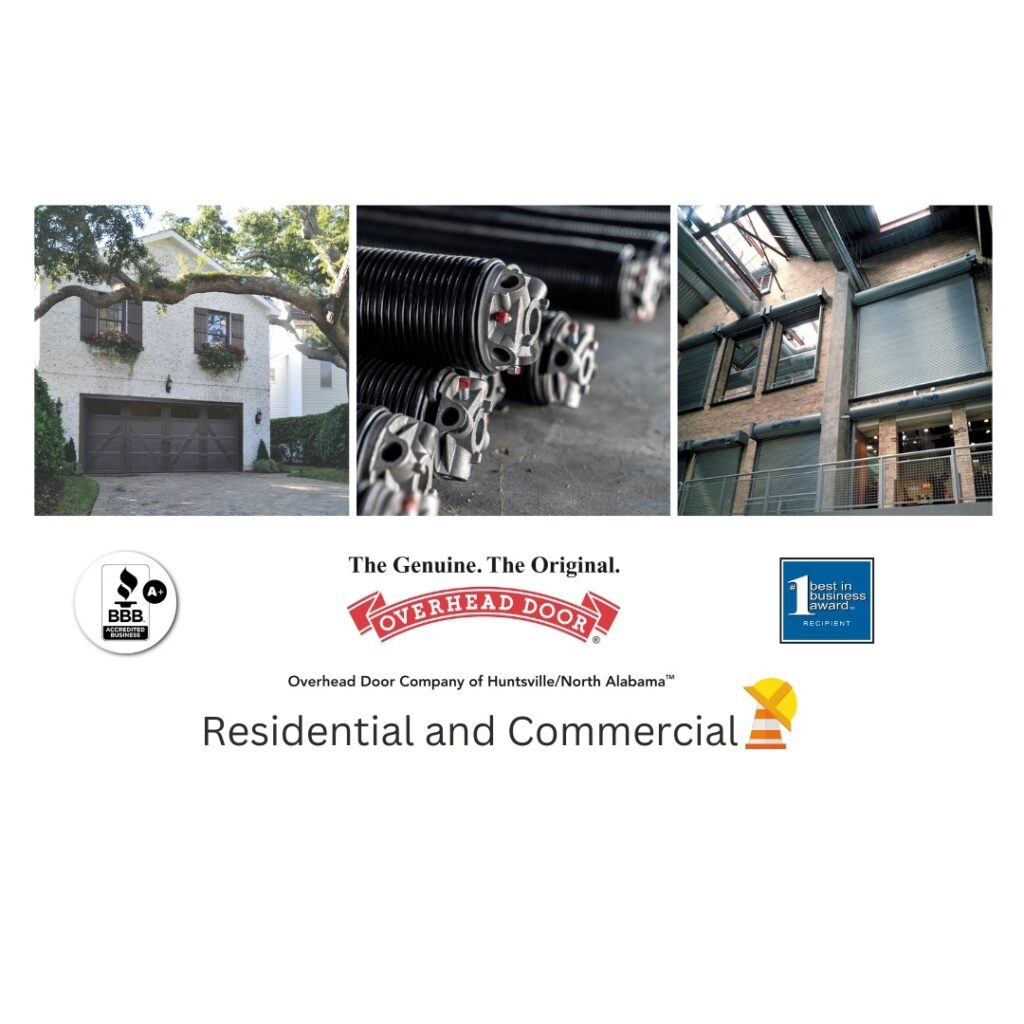
Welcome to another insightful exploration brought to you by the Overhead Door Company of Huntsville/North Alabama™.
Today, we dive into a common yet perplexing issue many homeowners encounter – a garage door that moves more slowly than it should. This isn’t just a minor inconvenience; it can disrupt your daily routine and compromise your home’s security. Join us as we unpack the reasons behind a slow-moving garage door and provide practical solutions to get it back on track.
The Common Culprits Behind a Garage Door Moving Slowly
A smoothly operating garage door is essential for convenience and safety. However, various factors can cause it to slow down. Let’s explore these potential culprits and how to address them.
- Bent Track or Track Obstruction
The tracks of your garage door are like a train’s railway lines. They must be in perfect alignment to ensure smooth operation. However, even small obstructions can hinder the door’s smooth operation, and a bent track can cause serious issues. Regular inspections can help identify any blockages, buildup of dirt, or deformations. Cleaning the tracks with a soft cloth or a brush can clear most of these blockages. For stubborn dirt or rust, you might need to use a mild detergent. However, remember to avoid using any harsh chemicals that could corrode the tracks. If you notice that the track is bent, it’s best to call a professional garage door technician.
• Lack of Lubrication
Garage door systems have an array of moving parts including springs, hinges, and rollers. These components rely on lubrication to reduce friction and maintain efficient operation. Over time, the lubrication wears away, which can increase friction between parts, slowing down your door’s operation.It’s important to avoid applying lubricant on plastic parts, as it can cause damage. Use a non-silicone, high-quality silicone or lithium-based lubricant only on the metal components. Remember that WD-40, a common household staple, isn’t suitable for garage doors. WD-40 is a solvent and is intended to remove rust and grease. Using it on your garage door parts might actually increase friction and make your door operate slower.
• Worn Out Springs
The torsion or extension springs play a vital role in your garage door’s operation. Over time, these springs can weaken due to regular wear and tear. When this happens, your garage door opener has to work harder to lift and lower the door, which can lead to slower operation. You might also notice the door feeling heavier than usual when trying to open or close it manually. Adjusting or replacing these high-tension springs can be risky, so it’s always best to get a professional garage door technician if you suspect worn-out springs are the issue.
• Damaged Rollers
Rollers are what guide your garage door along the tracks, allowing it to move smoothly and swiftly. But over time, they can wear out, become damaged, or misalign. This damage can cause the door to drag and slow down. Regular check-ups can help spot roller issues early. If the damage is minor, you may be able to rectify it yourself, but significant issues are best handled by professionals.
• Unaligned Door Panels
Verify that the door panels are aligned correctly. An easy way to check is by closing the garage door and checking that each door panel is even and looks level. If any panel appears crooked, it can cause the door to open and close slower than normal. It’s advisable to call a professional garage door technician to fix improperly aligned door panels.

• Cold Weather
During colder months, your garage door might operate more slowly than usual. This slow operation can be due to the lubricant on the door’s moving parts thickening because of the cold, thereby increasing friction. If the problem persists, switching to a low-temperature lubricant can help.
• Incorrect Switch Settings
Most modern garage door openers come with adjustable speed settings. If your door is operating slowly, the speed setting on your opener might have been accidentally adjusted. Check the owner’s manual for guidance on how to examine and alter these settings.The placement of the up-limit switch, typically located on the end of the track near the motor unit, is crucial for the correct operation of your garage door. This switch regulates the garage door’s opening mechanism.
If the up-limit switch is too far from the motor, the motor might stop the door before it fully opens, resulting in a slow or partial opening. In this case, moving the up-limit switch closer to the motor unit can resolve the issue. This problem is typically seen soon after a new garage door opener has been installed.
Alternatively, if your garage door opens correctly but the motor doesn’t stop running, the up-limit switch might be too close to the motor unit. Moving the switch further away can help. This issue is usually observed when a garage door opener is newly installed, or if the gears inside the motor unit have been stripped, causing the motor to run without moving the door.
Adjusting garage door switch settings without professional expertise is unsafe and can lead to hazardous situations. Improper adjustments may cause the door to slam down with excessive force, posing a risk of accidents, injuries, and property damage. Garage door systems are complex, involving technical components and tension settings that require specialized knowledge to ensure safe and smooth operation. Relying on trained professionals for these adjustments is essential to prevent potential dangers and maintain the longevity of the garage door system. Their expertise guarantees the correct settings, ensuring a safe and controlled door operation for homeowners’ peace of mind.

• Power Source Issues
If your power source isn’t consistently delivering power, the speed of your garage door opener may be affected. Test the outlet by plugging in another device to see if it’s working correctly. If you find any inconsistencies, you might need an electrician to solve the problem.
• Battery Backup Activated or Dead Battery
Some garage door openers feature a battery backup system that switches on when there’s a power failure. However, this backup system can cause the door to operate slower than usual. If you’ve experienced a recent power outage or you notice your door operating slower, check the circuit breaker to see if it’s tripped.
If the power to the opener is fine, but it’s still slow, your opener might be running on battery backup. Refer to your opener’s manual or contact a professional for guidance on switching back to the primary power source. Additionally, remember that the lifespan of these batteries isn’t indefinite. They can weaken over time or if the backup mode is frequently used, requiring replacement.
• Motor Issues
The motor is essentially the powerhouse of your garage door opener. A variety of issues, like old age, damaged components, electrical problems, or a need for a reset, can affect the motor’s speed. Over time, the gears inside the motor unit can wear out and even strip, causing the door to operate more slowly.
Furthermore, like any other component in your home, the garage door opener won’t last forever. If it’s showing signs of age, you might need to consider replacing it. In some cases, a simple reset (unplugging and plugging back in) might solve the problem. However, if you suspect complex issues like stripped gears or an aging motor, it’s best to contact a professional garage door technician for inspection and repair.
• Unbalanced Garage Door
An unbalanced garage door can cause the door to operate slower than usual. This is because the imbalance puts additional strain on the garage door opener and other mechanical parts, making them work harder to open and close the door. The imbalance may result from a variety of factors, such as a broken or worn-out spring, uneven tension, or worn components. When this happens, it can negatively impact the speed and overall operation of the garage door.
In addition to running slower, this extra strain can lead to premature wear and tear on the garage door’s components, possibly causing further damage or breakdowns over time. Therefore, it’s important to rectify any balance issues as soon as possible to ensure the longevity and efficient functioning of the garage door.
When Professional Help is Needed
While you can handle many garage door problems at home, some situations require the expertise of a professional. If you’ve checked everything on this list and your garage door is still operating slowly, it’s time to call in the experts.
Here at Overhead Door Company of Huntsville/North Alabama™, we pride ourselves on helping homeowners and businesses with our expert advice. Even though our services are localized to Huntsville/North Alabama, our goal is to educate and empower garage door owners everywhere through our online resources.
If you’re in our local area and need hands-on assistance, don’t hesitate to reach out to us. We believe in upfront, transparent pricing and top-quality service to ensure your garage door is running smoothly. Stay tuned to our blog for more insightful content, and feel free to reach out with any queries.
FAQ Section
Q: How often should I lubricate my garage door’s moving parts?
A: We recommend lubricating the moving parts at least once a year, but checking them every six months is a good practice.
Q: Can I adjust the speed of my garage door opener myself?
A: While minor adjustments can be made using the owner’s manual, significant changes or troubleshooting should be handled by professionals to ensure safety and effectiveness.
Q: What signs indicate that my garage door opener needs to be replaced?
A: Frequent malfunctions, excessive noise, and slow operation even after addressing other issues can all signal that it’s time for a replacement.
Call Us for Expert Service
If you’re experiencing issues with your garage door, don’t hesitate to reach out to us. Our team is ready to provide the assistance you need to keep your garage door running smoothly. Contact us today at Overhead Door Company of Huntsville/North Alabama™, and stay tuned for more insightful content.
Call Us to Schedule Your Service
Visit Our Troubeshooting Guide
Making Garage Door Repairs Simple For You
Overhead Door Company
of Huntsville/North Alabama™
9550 Madison Blvd.
Huntsville, AL 35758
256-772-3674






